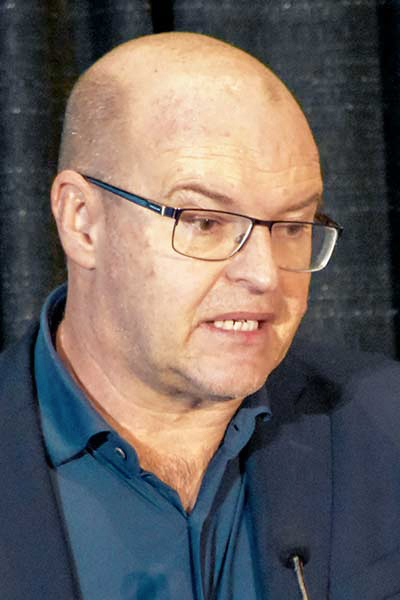Preliminary studies have shown that chimeric antigen receptor (CAR) T cell therapy is a feasible and promising approach for treating severe pediatric autoimmune disease, according to Georg Schett, MD, Vice President of Research at Uniklinikum Erlangen, Friedrich-Alexander-Universität Erlangen-Nürnberg, Germany.

Dr. Schett summarized these findings during the session Go CAR-Ting and Beyond for Kids: State of the Art of Pediatric Cell-Based Therapies on Sunday morning at ACR Convergence 2025. Recorded sessions at ACR Convergence 2025 will be available on demand to all registered meeting participants within 72 hours of the live presentation through October 31, 2026, by logging into the meeting website.
Pediatric autoimmune diseases, such as pediatric systemic lupus erythematosus (SLE), juvenile dermatomyositis (JDM), and juvenile systemic sclerosis (JSSc), are severe health conditions that can impair growth, place psychological and social burdens on patients, and carry an increased risk for mortality, among other debilitating symptoms.
“They [pediatric patients with autoimmune diseases] suffer a lot, they are impaired from the beginning, and they also have a massive problem in the participation of daily life,” Dr. Schett said. “Therefore, I think better treatments for children with autoimmune diseases are desperately needed.”
Dr. Schett characterized CAR-T cells as unique “therapeutic machines.” He explained that, unlike any other drug, CAR-T cells are a living drug. When infused into a patient, CAR-T cells are activated through antigen binding and produce 1,000 followers. Since this is a retro lentiviral transfection of the CAR, these follower cells also express the CAR. One of these cells can kill up to 1,000 targeted cells in the body, which Dr. Schett labeled as a “serial killing effect.”
“They [CAR-T cells] have unlimited access to any organs, including the brain,” he explained. “Therefore, CAR-T cells are extremely effective to kill the target cell.”
The aims of this potent treatment are lofty, as defined by Dr. Schett. Inhibiting the progression of damage and organ failure, as well as the cessation of chronic immunosuppression, are the key goals in CAR-T therapy for pediatric patients with autoimmune diseases. Over time, these patients might even be safely labeled as cured from their conditions.
“It’s an aim as a physician to cure a disease rather than to suppress it, and there is a long-term perspective with the vision of a cure for patients,” Dr. Schett said.
CAR-T therapy applications for pediatric patients with autoimmune diseases are still in the nascent stages of study and development. Dr. Schett explained that while few children have received CAR-T therapy, the early results are encouraging.
He reviewed several case studies, including a patient who had severe SLE, which had onset while she was 17, and she wasn’t responding to traditional treatment regimens. Since she received CAR-T treatment over three years ago, she no longer requires any glucocorticoids or immunosuppression.
“This is eye-opening because she didn’t have a little bit of lupus. She had a multi-organ lupus that was super-resistant to any treatment, and this lupus is gone,” Dr. Schett said.
Findings from a similar CAR-T therapy study in China showed similar promise, also resulting in the discontinuation of glucocorticoids and immunosuppressants.
Dr. Schett also shared that initial data for CAR-T therapy in treating JDM and JSSc appear similarly viable, with promising safety and efficacy outcomes.
In fact, studies of CAR-T therapy in adults with autoimmune diseases show fewer risks than using the treatment for non-Hodgkin’s lymphoma (NHL). Data cited by Dr. Schett showed that patients with autoimmune diseases are less likely to develop cytokine release syndrome and require lower doses and duration of other therapies, such as tocilizumab and steroids, than patients with NHL.
The current disparity of data on the efficacy and safety of CAR-T therapies for pediatric patients underscores the need for further clinical studies. Seattle Children’s launched the first CAR-T clinical trial for children with lupus late last year.
“I think we will hear a lot of news in the next year about this therapy in pediatric medicine,” Dr. Schett said.
Don’t Miss a Session

If you can’t make it to a live session during ACR Convergence 2025, make plans to watch the replay. All registered participants receive on-demand access to scientific sessions after the meeting through October 31, 2026.
